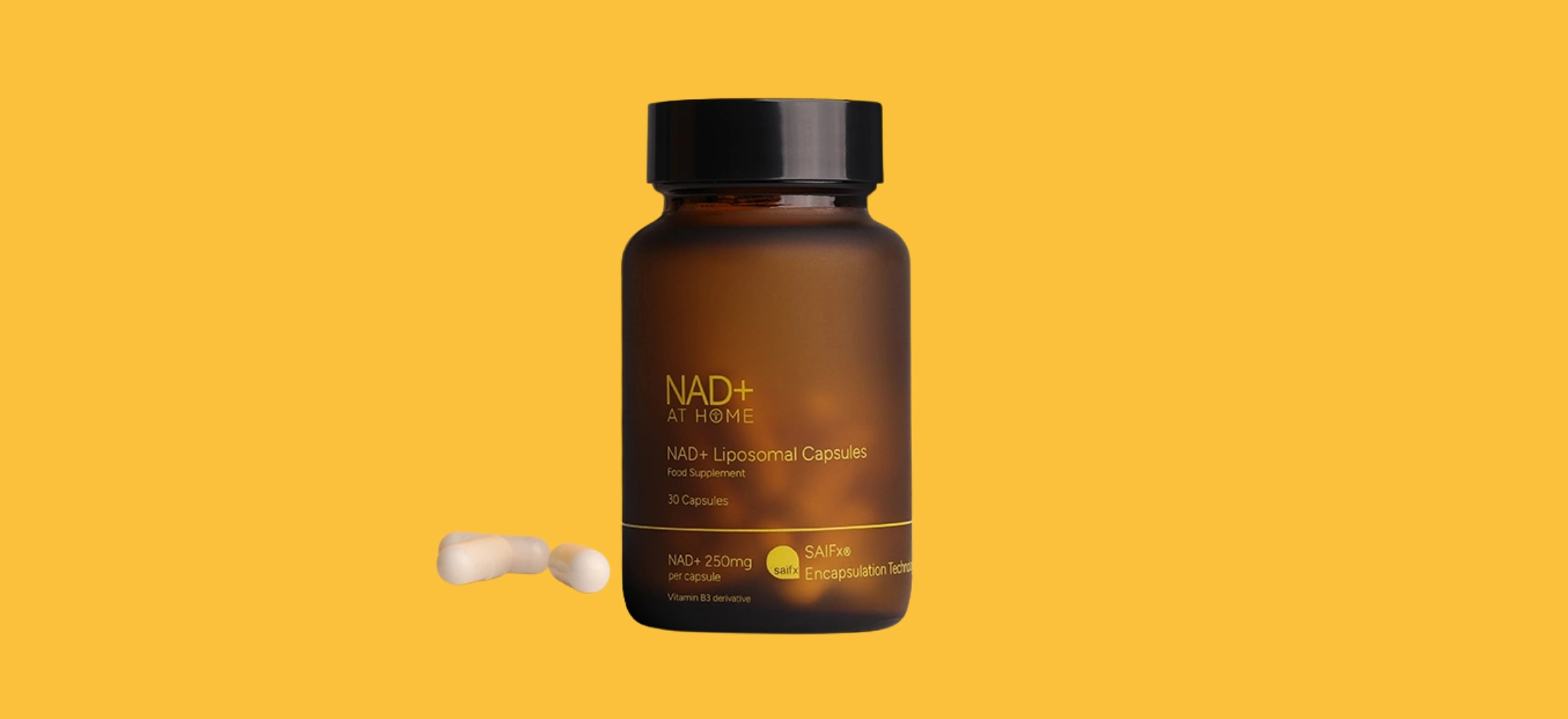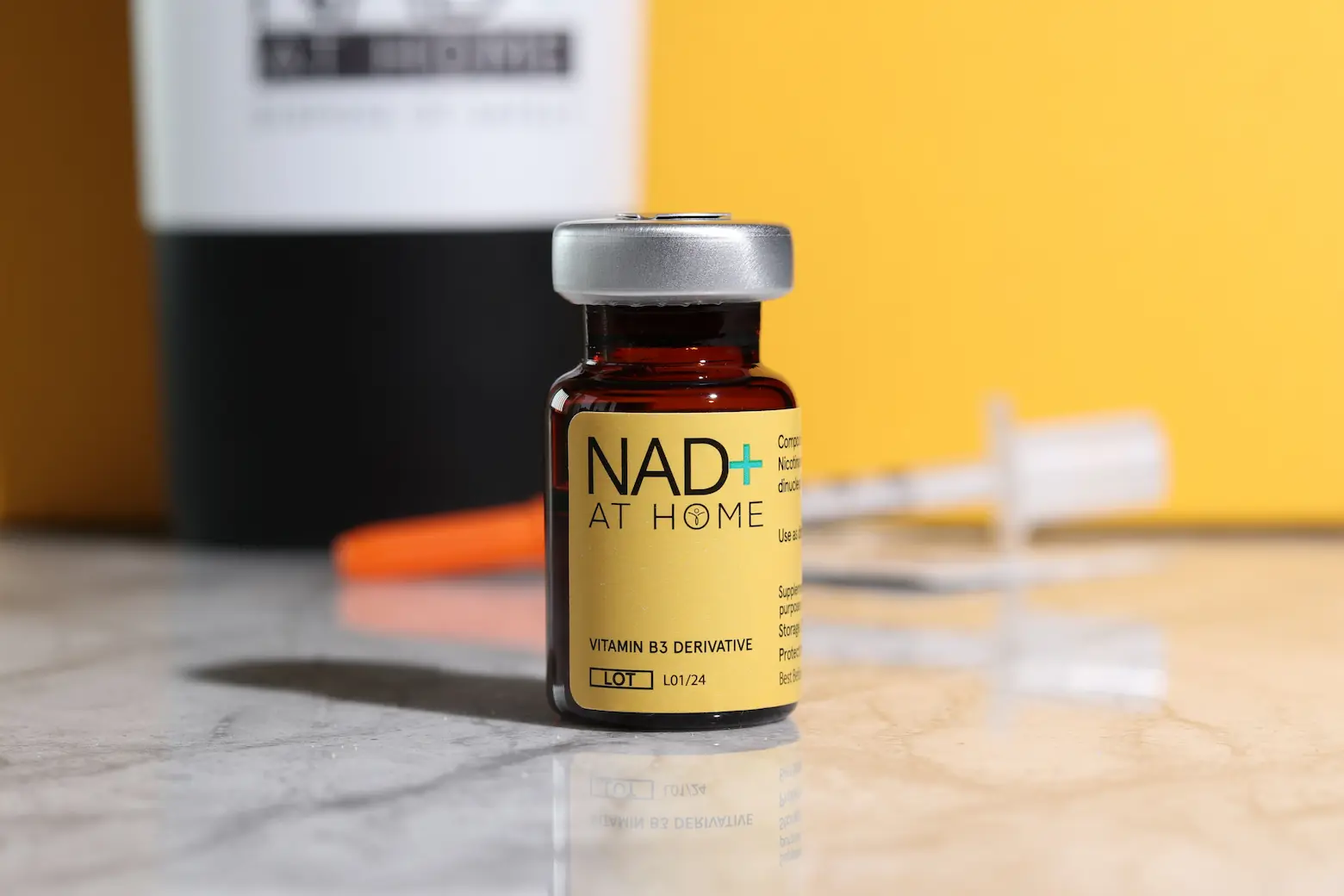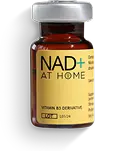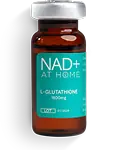Interest in NAD+ has exploded over the past few years. Wellness blogs and search trends are some of the places where you can find claims about increased energy and longevity support. It’s no surprise that with so much excitement around it, many people have turned their attention to NAD+ capsules as a way to support their health.
But often as with any interest, confusion also arises. After all, there are different brands promoting varying delivery systems like capsules, powders, drops and liquids. That’s before we mention clinics offering IV infusions and at home NAD+ injections.
Consumers are now asking, is taking NAD orally effective? And if so, what type of NAD supplement is best?
Here, we break down the science behind NAD absorption, compare oral forms to injections and share important factors to consider when deciding which approach makes sense for your wellness goals.
A Quick Refresh on NAD+
NAD is short for nicotinamide adenine dinucleotide. It’s a molecule found in every living cell around the body and has an important role in:
Cellular Energy Production
In its simplest form, NAD helps to convert the food we eat into usable cellular energy. Without it, metabolism slows which is why NAD often comes up in conversations around fatigue, vitality and general metabolic health.
Cellular Repair
NAD is also a key partner for enzymes involved in DNA repair, inflammation regulation and cellular stress response. Because it is responsible for how well our cells age and function, NAD is often associated with longevity research.
Research tells us that NAD levels naturally decline with age – and stress, illness, poor sleep and certain lifestyle factors can also cause a drop. This is just one reason why NAD supplements – both oral and injectable – have become so popular.
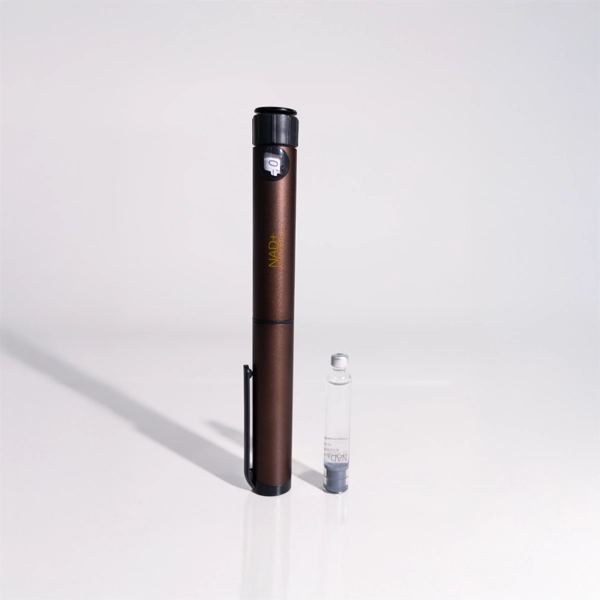

Can You Take NAD Orally?
Yes, NAD can be taken orally. But how effective it is will depend on the form of NAD and how well your body can absorb and convert it.
Oral NAD options typically fall into three categories: traditional capsules or tablets, sublingual NAD+ or liposomal NAD+ formulas. These latter ones enter the digestive system before reaching the bloodstream meaning that NAD supplements absorption rates can vary significantly. But more on that later.
Is Taking NAD Orally Effective?
The short answer is yes, oral NAD can be effective. But its effectiveness varies. It also often delivers more gradual support compared to injections or IV therapy.
Traditional Oral NAD supplements
NAD+ capsules tend to have lower absorption because NAD+ is a large molecule. This means that a lot of it can break down in the digestive tract before the body has a chance to use it. Because of this, many supplement manufacturers use precursor molecules such as NR (nicotinamide riboside) or NMN (nicotinamide mononucleotide), which the body then converts into NAD⁺.
Research shows that in doing this there is a better absorption rate, though results are still very much individual. Any results achieved also tend to be gradual, over time, compared to immediate.
Sublingual NAD
Typically available in powders, lozenges and drops, this type of NAD is held under the tongue before swallowing. Delivery this way gives the NAD+ molecule a chance to enter the body’s circulation through mucous membranes in the mouth. It’s believed this method may offer better bioavailability than standard capsules because it bypasses some of the digestive breakdown.
However, factors such as formulation quality, how long the product is held under the tongue and individual oral absorption need to be considered – as they can influence results.
Liposomal NAD
Liposomal supplements contain NAD+ or NAD precursors in a liquid sphere. This keeps the NAD protected as it travels through the digestive system, ensuring better absorption. Early studies suggest this delivery method is promising but liposomal technology does vary between brands. Therefore, finding a high-quality manufacturer is essential.
Oral NAD vs NAD Injections
Oral NAD works for many people, especially those with long-term wellness goals. However, NAD injection or IV NAD therapy come with different advantages. For starters, injections deliver NAD directly into the bloodstream, bypassing the digestive system and potential breakdown.
This allows for higher bioavailability, stronger and more immediate results and more predictable dosing. In contrast, oral NAD provides a slower and more gradual support because the body absorbs and converts it over time.
Think of it this way: oral NAD provides a steady top-up whereas NAD injections are a rapid refill. Because of this, injections are often chosen for people with more intensive wellness goals or those on therapeutic programmes.

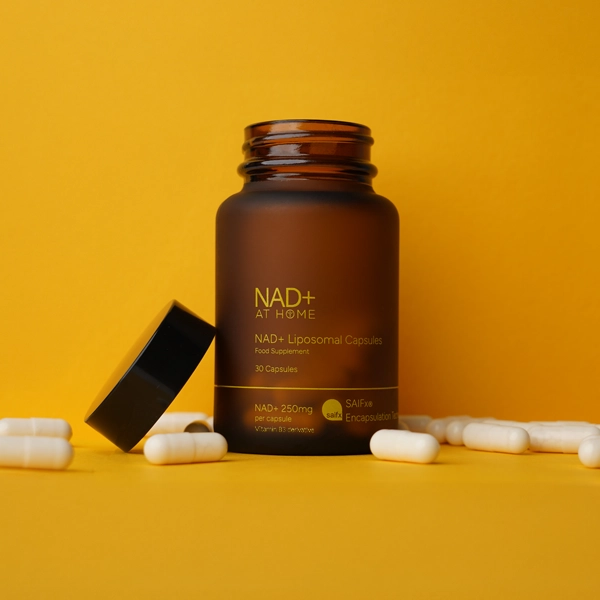
Who May Benefit From Oral NAD?
Lots of people can benefit from NAD. Some of the most common uses include:
- – General wellness and maintenance: People who want to support their everyday energy and metabolism may find oral NAD a convenient option.
- – Early anti-ageing: Those looking to age more healthily and support their cellular health often prefer a consistent and easy-to-remember supplement that fits easily into their daily life.
- – Cognitive support: Some people report steady improvements in their clarity and vitality over time with daily NAD supplements.
While NAD injections come with a whole host of benefits, for goals like these, the convenience and affordability of oral NAD can be major influences.
When NAD Injections May Be Preferred
More intensive wellness goals may sometimes call for a more direct form of delivery. This includes those individuals seeking:
- – Support for chronic fatigue: Some people use NAD injections as part of a broader strategy for managing severe energy depletion.
- – Neurological support: In clinical and wellness settings, injections are often used when rapid NAD+ replenishment is required.
- – Recovery: Many detox and recovery initiatives include NAD as part of a supervised treatment plan, typically delivered through IV therapy for stronger bioavailability.
- – Fast and more noticeable effects: Because injections deliver NAD+ directly, some people prefer them when they desire quicker and more pronounced results.
It’s important to note that NAD is not a treatment or cure for any medical condition and the above uses should always be supervised by a healthcare professional. However, research does suggest that IV therapy and injections can offer different benefits to individuals compared to oral supplements because of the enhanced NAD bioavailability.
Safety Notes
In order to get the most out of your NAD supplements, it’s best to work with experienced professionals. Whether choosing oral or injections, professional guidance ensures the correct dosing, safe use and proper integration with your needs.
Supplement quality matters too and NAD supplements vary hugely. Look out for transparent manufacturing standards, clear ingredient sourcing, third-party testing and reputable brands with scientifically informed formulations. High-quality oral NAD is more likely to be effective than low-grade under-dosed products.
The Bottom Line: Is Taking NAD Orally Effective?
Yes, oral NAD can be effective – especially when it comes to well-formulated sublingual and liposomal products. But absorption and quality vary, and effects tend to be gradual rather than immediate. What’s more, choosing between the best NAD supplement forms depends on your goals.
For those looking for faster and more intensive support, injections or IV therapy remain the most direct option. And if you’re exploring the best NAD strategy for your health and want to work with an experienced provider, the team at NAD+ At Home can help you to find the safest, most effective and personalised option.
Related Blogs
Check out our latest articles on NAD+.
